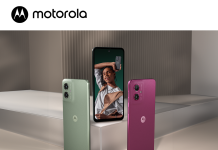Pixels aside, very few Android phones receive updates in an even remotely decent timeframe. We complain about Android version updates not making it to many phones, but ultimately it’s the regular security patches that are more important.
At Google IO, the company detailed Project Mainline, which endeavours to improve the rollout speed of updates to some core components of the OS on devices across different manufacturers.
Project Mainline breaks down parts of the OS into modules that can be updated separately, without one having to wait for the manufacturer to be ready with a full system patch. It’s an ambitious change.
These updates will be delivered from Google Play, and will take the form of either an APK files or a new APEX file. APK files are loaded into a booted OS as standard, while APEX files added loaded earlier in the boot process.

Project Mainline focuses on Security, Privacy and Consistency and the team has selected 13 components for this modularisation process. If updates are needed outside of those components they’ll have to wait, but the Mainline team has considered where the majority of vulnerabilities have been found in recent years and focused their attention there.
The end result is that important security and other improvements that at the moment require an OS update can be installed via the Play Store just as you would an app update — the update file will actually download in the background and install the next time you reboot your phone.

The source code and modules for Project Mainline will be kept in the AOSP and after an update is released it will be fully open-sourced. This will hopefully mean much faster updates to what may be smaller parts of the OS but still important.
If it sounds familiar, it’s probably because it is. Project Treble was meant to speed up the rate at which users saw OS version (and other) updates but unfortunately we are yet to see much on in indentation in the lack of Android version OS updates rolling out from manufacturers other than Google.
Project Mainline will start with all phones being released with Android Q out of the box and will not be able to be ported back (at this stage). Whether this actually creates a noticeable difference in the update frequency is yet to be seen of course but after Treble’s limited success I’m not holding my breath.





+1 on no more carrier interference (policing of updates should not be their job). I don’t think there’s much that can be done in regard to OEM interference though due to the increased variance in device configurations compared to devices running iOS.
One thing I want to see added to Mainline is emoji support libraries so that communication between different versions of Android isn’t hampered by “unknown” boxes where newly approved emoji should be.
I actually like One UI. Stock Android is boring and has less features.